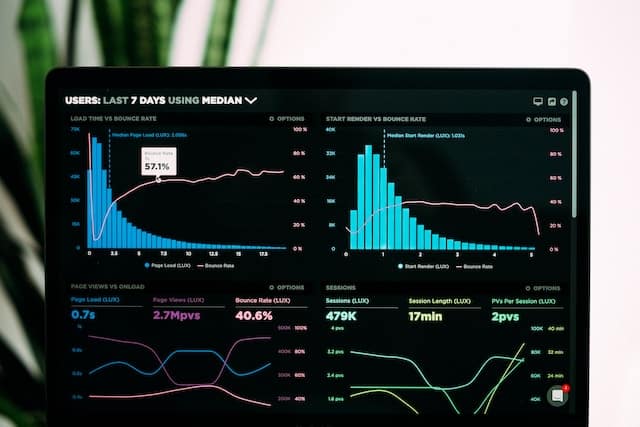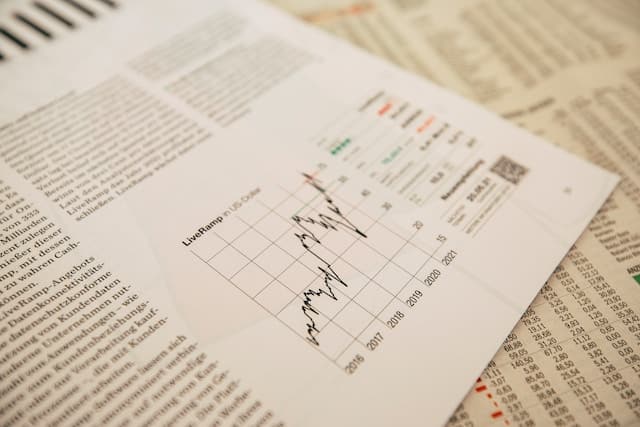Are you pursuing a Master’s in Data Science or recently graduated? Great! Having your Master’s offers abundant career prospects.
The field demands professionals skilled in leveraging data for informed decisions and enhanced business outcomes. This degree can significantly boost earning potential due to escalating demand.
Salaries for data science professionals vary depending on factors such as experience, location, and industry. On average, data scientists in the United States earn about $119,000 to $124,758 per year.
However, a Master’s in Data Science can give you an advantage in the job market. In some cases, it might lead to starting salaries above $150,000.
This article will explore why a Master’s in Data Science is a good idea and what salaries you can expect in various positions and locations.
By investing in a Master’s in Data Science, you are setting yourself up for success in this rapidly growing field.
Let’s get to it!

The Demand for Data Scientists
As a professional in the data science field, you’ll notice that the demand for data scientists is continually growing.
In fact, the employment of data scientists is projected to grow 35 percent from 2022 to 2032, a pace much faster than the average for all occupations.
This demand can be attributed to the various technological advancements and the growing importance of data in decision-making processes.
Now, let’s look into some role-specific salaries.
Role-Specific Data Science Salaries

One of the fascinating aspects of pursuing a data science career lies in the diverse range of roles and the corresponding salary structures within the field.
A Master’s in Data Science opens doors to a multitude of specialized positions, each commanding distinct compensation packages based on skill sets, experience, and industry demand.
Let’s start with one of the most popular occupations, a Data Scientist.
1. Data Scientist

As the cornerstone of the field, data scientists wield analytical prowess to extract insights from vast datasets.
Their ability to create predictive models and develop algorithms often garners competitive salaries.
Ranging from entry-level positions, which can start at around $96,000 annually, to experienced professionals earning well over $140,000, especially in tech hubs like Silicon Valley or major metropolitan areas.
However, mid-career data scientists can expect to earn an average of around $127,000.
2. Machine Learning Engineer

These professionals focus on designing and implementing machine learning systems.
Due to their specialized expertise, their salaries often match or exceed those of many data scientists, with entry-level positions starting at around $127,000 and senior roles reaching beyond $170,000.
Learn more about machine learning capabilities:
3. Data Engineer

Responsible for constructing and managing data pipelines, data engineers ensure the smooth flow and accessibility of data for analysis.
Salaries for data engineers are generally higher than those of data scientists, with entry-level positions averaging around $89,000 and experienced professionals earning upwards of $170,000.
4. Data Architect

Data architects focus on designing and implementing data management solutions.
Their expertise lies in creating and maintaining the architecture that supports data storage and utilization.
Entry-level data architect positions might start around $117,000, while experienced professionals can earn well over $150,000, with some reaching into the $190,000 range, especially in senior or leadership roles.
5. Chief Data Officer

As a C-level executive responsible for an organization’s data strategy, governance, and utilization, CDOs command some of the highest salaries in the data science realm.
Their compensation often exceeds $200,000 at the entry level and can surpass 6 figures for seasoned professionals, depending on the company size and industry.
6. Director of Data Science

This leadership role involves overseeing and guiding data science initiatives within an organization.
Directors of Data Science typically earn between $250,000 and $208,000 at the entry level, with highly experienced directors earning over $200,000.
Remember, these figures are approximate and can significantly vary based on geographic location, industry, company size, and individual qualifications.
However, with a master’s in data science under your belt, you can expect the salary for your next job to be slightly higher than the listed amounts, reflecting your efforts and expertise.
Now, let’s look at how the location of your role can effect your salary.
Effect of Location on Salary

When considering a career in data science, it’s important to understand that your location can significantly impact your salary.
This is an important factor to consider when deciding whether getting a master’s in data science is financially worth it.
For instance, in California, home to several tech hubs and major cities, data scientists can expect higher salaries than those in the South or other locations with lower living costs.
The competition for high-paying data science roles is intense in cities like San Francisco and Silicon Valley. Here, the demand for skilled data scientists often drives up the salary.
To compare, here’s a list of median annual salaries for data scientists in a few selected cities and states across the US:
San Francisco, California: $143,980
New York City, New York: $126,857
Austin, Texas: $125,612
Chicago, Illinois: $139,876
Keep in mind that these figures are only meant to provide a general idea of how location can affect salary and do not account for factors such as the company’s size or the specific industry.
As you embark on your career, take the time to research different cities and regions, understanding how location factors into salary and cost of living.
This will ensure you maximize your earning potential and choose the right place to build your career.
So, is your career choice a smart one? Let’s find out.
Projected Job Growth

According to the U.S. Bureau of Labor Statistics, the employment of data scientists is projected to experience significant growth in the coming years.
With a 36% increase expected from 2021 to 2031, the job outlook for data scientists is highly favorable. This growth rate is much faster than the average for all occupations.
On average, there will be about 17,700 job openings for data scientists each year over the decade. This surge in demand can be attributed to the increasing reliance on data-driven decision-making across various industries.
Remember, Data scientists play a crucial role in helping businesses and organizations gain insights, make informed decisions, and improve overall performance.
Is a Master’s in Data Science Worth It?

While pursuing a Master’s degree in Data Science can be a valuable investment in your career, it’s also crucial to consider the potential return on investment.
Keep in mind that, beyond your education, experience plays a significant role in determining your salary.
Let’s wrap this up.
Final Thoughts

Pursuing a Master’s in Data Science sets the stage for a career filled with possibilities.
While salaries can vary based on factors like location, industry, and experience, this graduate degree consistently opens doors to well-paying roles in a field with skyrocketing demand.
Furthermore, investment in this education often proves worthwhile, offering not just financial rewards but also the opportunity to thrive in a data-driven world that continues to expand and evolve.
Frequently Asked Questions
What is the average salary for a data scientist with a master’s degree?
As a data scientist with a master’s degree, you can expect to earn a competitive salary in the field. Recent data suggests that graduates with a master’s degree in data science earned an average annual salary of more than $155,000 in 2021.
How does a master’s in data science impact salary compared to a bachelor’s degree?
Having a master’s degree in data science can significantly impact your salary compared to having just a bachelor’s degree. On average, data analysts with a bachelor’s degree make over $62,000 a year, while those with a master’s degree can command salaries above $155,000 a year, showing the potential for a substantial earnings boost.
What are the highest-paying jobs for those with a master’s in data science?
As a professional with a master’s in data science, you can aim for some of the highest-paying jobs in the field. One example is the role of a lead data scientist, which commanded an average annual salary of around $134,100 as of September 2021. Your specific skills and industry expertise can also play a crucial role in determining your salary potential.
How does salary for a data scientist with a master’s degree vary by location?
The salary of a data scientist with a master’s degree can vary depending on the location. In general, metropolitan areas with a high demand for data science professionals, such as the San Francisco Bay Area, New York City, and Washington D.C., may offer higher salaries than smaller cities or rural areas. It’s essential to consider cost of living and job market trends when evaluating location-based salary differences.
What is the salary growth potential for a data scientist with a master’s degree?
Your salary growth as a data scientist with a master’s degree depends on factors such as experience, industry, and job performance. As you gain experience and specialize in specific areas, your salary is likely to increase. While the exact figure varies, seasoned data scientists with a master’s degree can earn well above the average salary for their experience level.
Do online master’s degrees in data science have the same salary potential as in-person programs?
In most cases, the salary potential for data scientists who underwent data science master’s programs online is similar to those who completed in-person data science programs. Employers typically focus on the quality and reputation of the data science program rather than the mode of education. Therefore, as long as you earn your degree from a reputable institution, an online master’s degree in data science should provide similar salary opportunities as an in-person degree.
Is a Master’s in Computer Science or a Master’s in Data Science better for a data scientist?
It depends on your preference. A Master’s in Computer Science emphasizes technical skills and algorithms, while a Master’s in Data Science focuses on data analytics and machine learning. Choose based on what aligns best with your career goals and interests.








